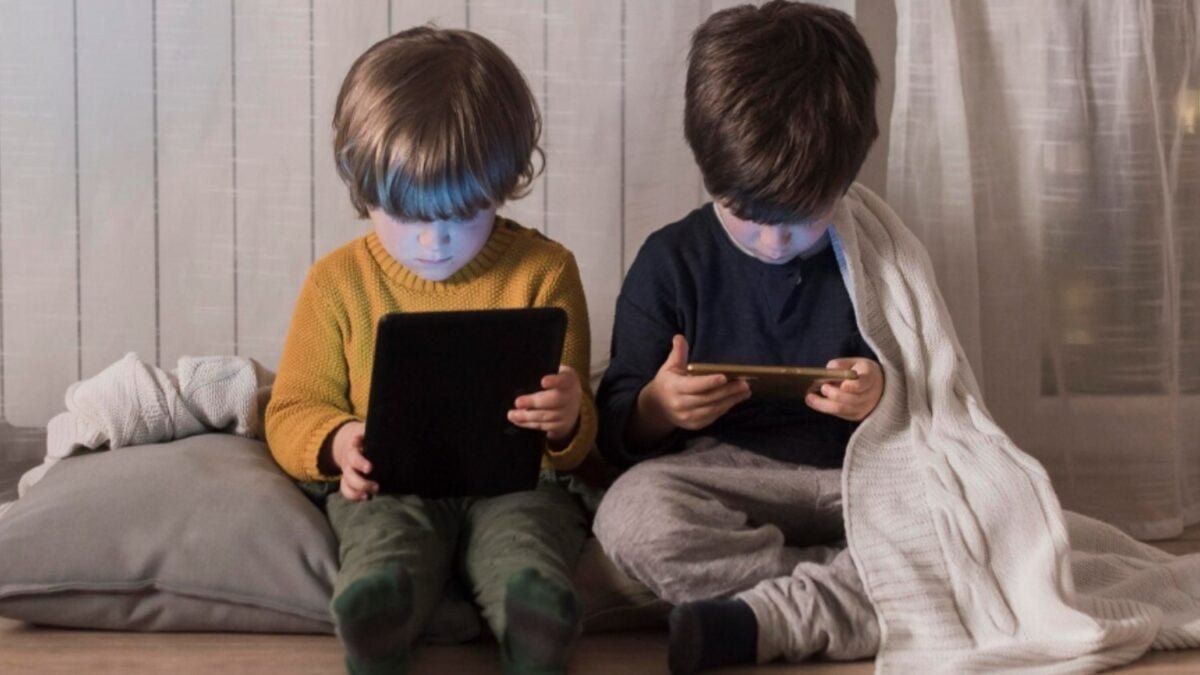Screens and Kids: The Silent Issue Affecting Our Little Ones’ Health and Well-being.

The Generation of Swipe Fingers
Televisions, tablets, smartphones: children of the 21st century are discovering the world through a screen long before learning to write. Moving images capture their attention, sounds stimulate them, and parents—overwhelmed or trusting—often allow these devices to become electronic babysitters.
However, what seems like innocent entertainment has raised alarms from the World Health Organization (WHO) and the French National Institute of Health and Medical Research (INSERM): early and prolonged screen exposure alters the physical, emotional, and cognitive development of children.
The numbers speak volumes. By the age of 2, children already spend almost an hour daily in front of a screen; by 5 and a half years, more than an hour and a half. Durations that far exceed international recommendations.
WHO Sets Limits: Less is More
Since 2019, the WHO recommends zero screen exposure before the first year of life, a maximum of one hour between 2 and 5 years old, and not just regulating time but preserving essential activities: free play, exploration, human contact, and rest.
These guidelines aim to protect three pillars of child development:
-
Sleep, which is affected by blue light and continuous stimulation.
-
Motor skills and language, which require movement and interaction.
-
Emotional regulation, which depends on human bonding and the ability to wait.
Physical Consequences: The Body on Pause
Screens invite immobility. Every minute in front of them is a minute less of active play, running, jumping, or exploring, leading to early myopia, becoming more common.
Sedentary screen time also disrupts circadian rhythms. The brain, deceived by artificial light, delays melatonin production, disturbing nighttime rest. The result: irritable children, with reduced attention and lower academic performance.
Given the evidence, France has become a pioneer. The report “Children and Screens: In Search of Lost Time”—presented to President Emmanuel Macron in 2024—proposed banning screens before the age of 3, strictly limiting them until 6, and restricting smartphone use in childhood.
From July 2025, all screens are banned in nurseries and childcare centers. In addition, the new medical record that French parents receive from birth includes guidelines on good digital practices. The goal is twofold: to protect children’s development and reduce inequalities, as kids from vulnerable backgrounds are often more exposed to screens due to lack of recreational alternatives.
### Between control and example
Limiting screens is not a crusade against technology, but an invitation to restore balance. Experts emphasize active involvement: watching together, discussing what is being watched, and teaching how to disconnect. Adult behavior remains the most powerful tool. If parents check their phones during dinner, they can hardly demand a child to put theirs aside. The generation of swiping fingers needs more than limits: it needs presence. And that shared time, away from screens, is the real antidote.




